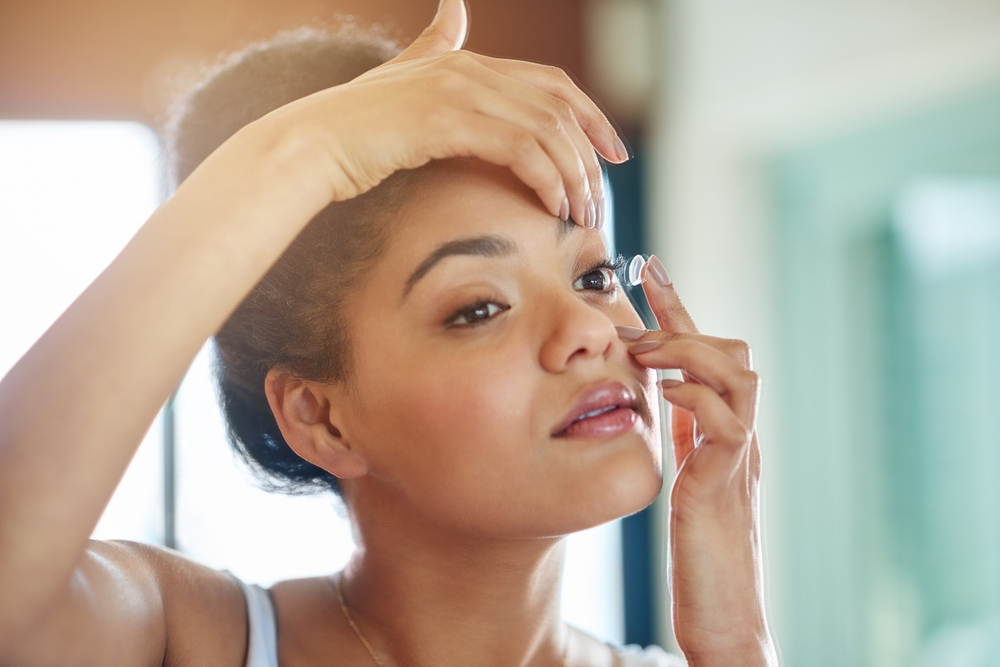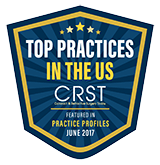Do you have unique vision needs? Is it challenging to wear regular contact lenses?
If so, you may want to consider specialty lenses. Unlike standard contacts, specialty contact lenses can meet your specific needs and allow you to see the world clearly.
Keep reading to learn more about what specialty contact lenses are and whether they could be right for you.
What are Specialty Contact Lenses?

Specialty contact lenses are custom-designed contacts to address certain vision needs and eye conditions that extend beyond the capabilities of regular contact lenses. You can benefit from specialty contact lenses if you have any of the following eye conditions or vision needs:
Keratoconus
Keratoconus is an eye condition that causes the cornea to gradually thin and protrude into a cone shape. This shape prevents incoming light from accurately focusing on your retina, leading to distorted, blurred vision.
Corneal Ectasia
Corneal ectasia refers to the thinning and bulging of your cornea, which may cause vision problems like blurred vision, astigmatism, and light sensitivity.
Traditional contacts don’t account for the cone shape, so they can become uncomfortable or painful to wear over time.
Complex Prescription
Complex prescriptions are prescriptions that conventional contacts can’t sufficiently address. If you have a complex prescription, you may not be able to see clearly with standard lenses.
Specialty contact lenses are effective for correcting complex or very strong prescriptions.
Astigmatism
In patients with astigmatism, the cornea is irregularly shaped like a football instead of being round like a basketball. The uneven shape of the cornea prevents light from focusing precisely on the retina, leading to blurred or distorted vision.
Conventional contact lenses are usually ineffective for correcting astigmatism, as they must be specially shaped.
Presbyopia
Presbyopia or age-related farsightedness happens when the flexible natural lens of the eye becomes rigid over time. Your lens becomes unable to shift focus from far to near, and as a result, objects that are up close appear blurry.
Severe Dry Eye

Dry eye occurs when your eyes don’t make adequate tears or produce poor-quality tears that evaporate too fast. It can lead to symptoms such as blurred vision, sensitivity to light and glare, faded colors, and double vision.
Regular contact lenses absorb moisture or tears from your eyes, causing dryness and irritation or exacerbating dry eyes. Severe dry eye can also cause contact lens intolerance.
You may find it very uncomfortable or even painful to wear conventional contacts if you have dry eye.
What are the Types of Specialty Contact Lenses?
The various types of specialty contact lenses include:
Rigid Gas Permeable (RGP) Contact Lenses
Rigid gas permeable (RGP) contacts are made from a hard material that lets oxygen pass through the lens and reach your cornea, allowing your eyes to breathe. They are custom-made to fit people with uneven corneas, such as those with keratoconus, corneal ectasia, or complex prescriptions.
RGP contact lenses support corneal health, enhance eye comfort, and offer superior visual clarity.
Scleral Contact Lenses
Unlike most contacts, scleral contact lenses don’t touch your cornea. Instead, these large-diameter, gas-permeable lenses vault over your cornea and rest over the sclera, or the white of your eye.
They’re fitted to leave space between the cornea and the lens of your eye. The space acts as a fluid reservoir that can keep your eyes moisturized and lubricated throughout the day, providing much-needed relief for patients with severe dry eyes.
Scleral contact lenses can also be better for patients with severe refractive errors and corneal irregularities.
Hybrid Contact Lenses
Hybrid contacts combine a soft skirting with a rigid gas permeable center. With these contacts, you can achieve the clear, sharp, and consistent vision of a rigid gas-permeable lens and experience the comfort of a soft contact lens.
Hybrid contact lenses can be a good option for patients with keratoconus and astigmatism. They’re also ideal for patients who can’t tolerate a rigid lens but need the stability of RGPs for crisp, clear vision.
Toric Contact Lenses
Toric contacts are specially designed to address astigmatism. Unlike conventional lenses that are made for spherical corneas, toric contacts are shaped differently to compensate for irregularly shaped corneas.
They have varying powers throughout the lens, ensuring that light entering your eyes focuses precisely on the retina for clear vision.
Multifocal Contact Lenses
Multifocal contacts combine multiple prescriptions in a single lens, allowing you to correct vision in more than one distance, including near, far, and intermediate. The lens has different focusing zones, each with a varying refractive power.
The zones work together to deliver clear vision at various distances. If you have more than one refractive error, multifocal contact lenses can help you experience the freedom of clear, unaided vision, no matter the distance.
With multifocal contact lenses, you’ll be able to read the menu, use your computer, and drive without reaching for your glasses.
Life is Better with Clear, Comfortable Vision

At Williamson Eye Center, we offer a wide range of specialty contact lenses to ensure patients with different vision needs can still enjoy the visual freedom that contacts provide. We’re equipped with advanced technology to help us custom-fit lenses and enhance your visual clarity while ensuring maximum comfort.
In fact, Williamson Eye Center is recognized as one of the largest and most comprehensive specialty lens centers in the nation. Not only are our doctors nationally recognized experts who lecture extensively, teaching other doctors how to fit the lenses, but patients also come to us from multiple states. Unlike any other office, we also have extensively trained billing and coding staff who are experts in assisting you in getting your lenses paid for by insurance!
Williamson’s Specialty Lens Experts
Dr. Joshua Davidson was the first optometrist to achieve expert fitter by the Scleral Lens Education Society in Louisiana, Mississippi, and Arkansas and he is the only certified expert in Louisiana. He is a national lecturer and KOL for specialty lenses and dry eye care. n
Dr. Ed Adams has been fitting scleral lenses for decades and is widely recognized in the optometric community for his knowledge and skill in the specialty lens space.
Schedule Today
Are you interested in specialty contact lenses? Schedule your appointment at Williamson Eye Center in Baton Rouge, LA, today to discover whether they could be right for you.



